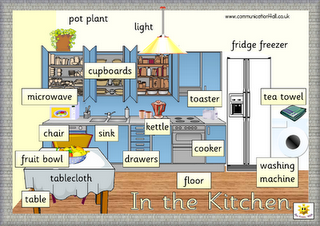A. Definition :
Preposition is the word that usually put before a noun or pronoun, which is specify place, direction, and time.
B. Purpose :
Preposition is the word before noun or pronoun that used to show place, position, time or method.
C. The Kinds of Preposition
1. Time Prepositions
Time Prepositions are used to state what time an event happened or will happen. Time prepositions usually come before nouns or pronouns. Preposition never come before a verb.
a. Time Preposition ‘ In ‘
We use Preposition ‘In’ for nonspecific times during a day, a month, a season, or a year.
Example :
· He’s going to quit in August
· It’s too cold in winter to run outside
b. Time Preposition ‘On’
We use Preposition ‘On’ to designate days and dates
Example :
· We’re having a party on the Fourth of July
· Where will you be on New Year’s Day ?
c. Time Preposition ‘At’
We use Preposition ‘At’ to designate specific times.
· I got up early at 3 o’clock this morning.
· Jane went home at lunch time
d. The example for dialogue
Nadya : When is the wedding?
Maria : It’s in June
Nadya : What day is it ?
Maria : It’s on Saturday, the 25th
Nadya : What time ?
Maria : It starts at 06:00
2. Place Prepositions ( In, On, At )
Place Preposition are the prepositions the used to describe the place or position of all types of nouns. It is common for the preposition to be placed before the noun.
a. Place Preposition ‘In’
We use Preposition ‘In’ for the names of land-areas (towns, counties, states, countries and continents)
Example :
· Durham is in Windham County
b. Place Preposition ‘On’
We use Preposition ‘On’ to designate names of streets, avenues, etc.
Example :
· SMAN 2 Palangka Raya is on K.S Tubun street
c. Place Preposition ‘At’
We use preposition ‘At’ for specific addresses.
Example :
Andre and Ryan lives at Paus XX Street number 40.
d. The Example for the Dialogue
Jerim : Where’s your office ?
Tyng : In Taipei, Taiwan.
Jerim : Really? What part of Taipei?
Tyng : It’s on Chung Shan North Road.
Jerim : I know that area. Where exactly is it?
Tyng : It’s at 105 Chung Shan North Road, next to the bookstore.






